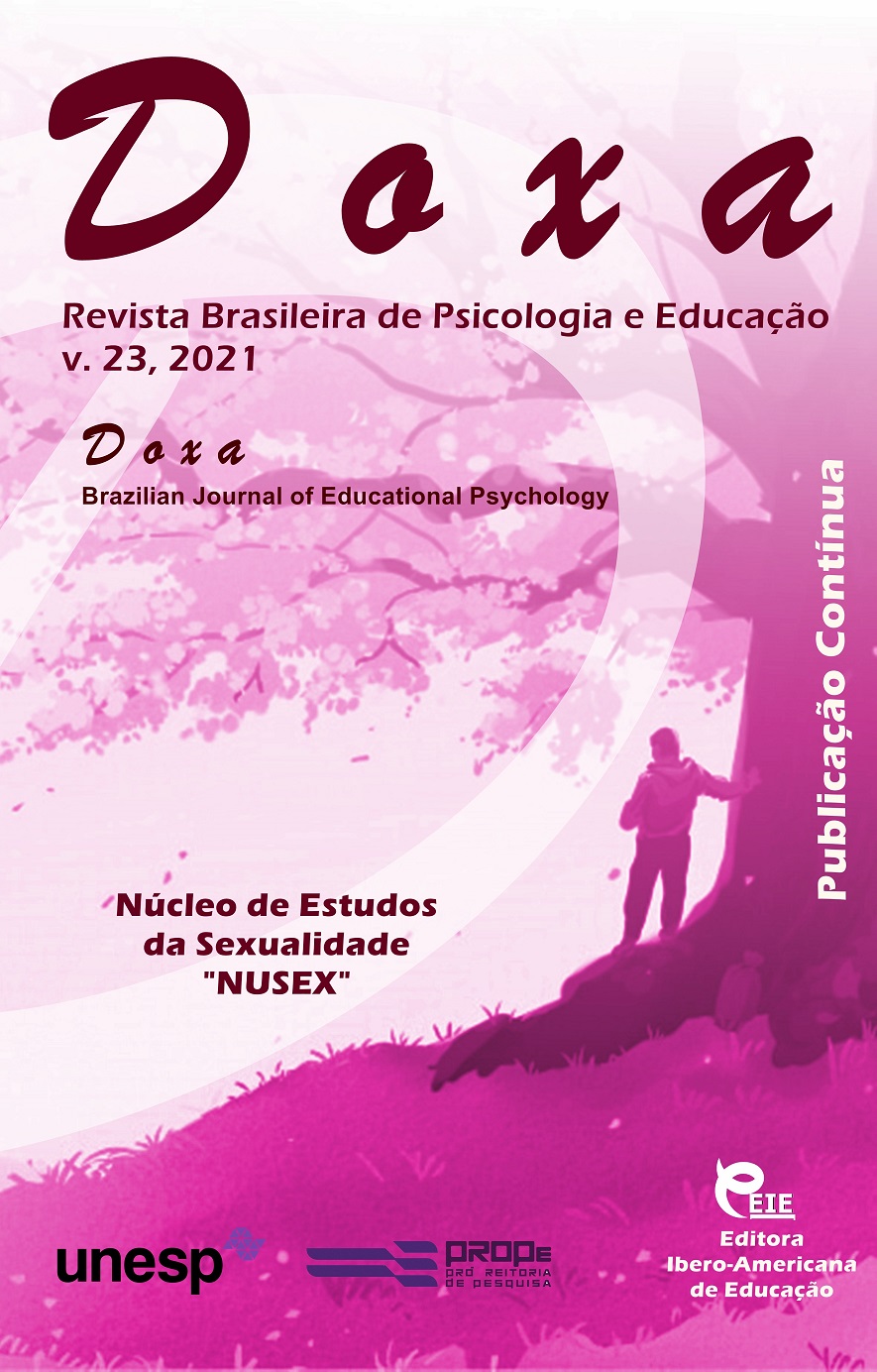Learning to read and write from a literacy perspective during the pandemic
DOI:
https://doi.org/10.30715/doxa.v22i00.14296Keywords:
Literacy, Teaching practices, Pedagogical interventionsAbstract
Schools usually play a crucial role in the insertion of students in social and cultural practices of reading and writing; however, this is not always true. The objective of this research was to regain the learning of these processes with an 11-year-old student. based on contributions with the theoretical assumptions of historical-cultural psychology. The study’s development is based on survey, interventions, and final evaluation. Initial data showed absence of phoneme articulation awareness, hypersegmentation or hyposegmentation, and monotonation. The intervention consisted of the following activities: reading stories, interpretation, written record, cake recipe, lip reading phonemes, selective attention exercises. The results show expansion of selective attention, perception, memory, creation of cognitive strategies for reading and writing, oral storytelling for the community, and domain of the nature of written language. The research revealed the importance of more individualized monitoring of teaching and learning processes, as well as altruism and positive expectations of the mediator in relation to access to reading and writing.
Downloads
References
ARAUJO, M. C. C. S. Perspectiva histórica da alfabetização. Viçosa: Universidade Federal de Viçosa, 1996.
BRASIL. Censo Escolar 2017. Brasília, DF: INEP, 2017. Disponível em: http://portal.inep.gov.br/censo-escolar Acesso em 23 de julho de 2020.
BRASIL. Ministério da educação. Base Nacional Comum Curricular. Brasília: MEC, 2018. Disponível em: http://portal.mec.gov.br/cne/arquivos/pdf. Acesso em: 20 jun. 2020.
BRASIL. Ministério da educação. Secretaria de Alfabetização. Política Nacional de Alfabetização. Brasília: MEC, SEALF, 2019. Disponível em: http://portal.mec.gov.br/images/banners/caderno_pna.pdf. Acesso em: 25 jul. 2020.
CAGLIARI, L. C. Alfabetização e linguística. 15. reimp. São Paulo: Scipione, 2008.
CAPOVILLA, A. G. S.; CAPOVILLA, F. C. Alfabetização: método fônico. 5. ed. São Paulo: Memnon Edições Científicas, 2010.
FERREIRO, E. Reflexões sobre alfabetização. São Paulo: Cortez, 2017.
MENDONÇA, O. S.; MENDONÇA, O. C. Alfabetização. Método sociolinguístico. Consciência social, silábica e alfabética em Paulo Freire. 3. ed. São Paulo: Cortez, 2009.
MUÑOZ, R. A experiência internacional com os impactos da COVID-19 na educação. Folha de São Paulo, 07 abr. 2020. Disponível em: https://www1.folha.uol.com.br/colunas/rafael-munoz/2020/04/a-experiencia-internacional-com-os-impactos-da-covid-19-na-educacao.shtml. Acesso em: 21 jun. 2020.
PASSOS, G. O.; GOMES, M. B. Nossas escolas não são as vossas: as diferenças de classe. Educação em Revista, Belo Horizonte, v. 28, n. 2, p. 347-366, jun. 2012 Disponível em: https://www.scielo.br/pdf/edur/v28n2/a16v28n2.pdf/. Acesso em: 10 jul. 2020.
SMOLKA, A. L. B. A criança na fase inicial da escrita. A alfabetização como processo discursivo. São Paulo: Cortez, 2017.
SOARES, M. Alfabetização e letramento. 2. ed. São Paulo: Contexto, 2004.
Published
How to Cite
Issue
Section
License
Copyright (c) 2021 DOXA: Revista Brasileira de Psicologia e Educação

This work is licensed under a Creative Commons Attribution-NonCommercial-ShareAlike 4.0 International License.
Manuscritos aceitos e publicados são de propriedade da Doxa. É vedada a submissão integral ou parcial do manuscrito a qualquer outro periódico. A responsabilidade do conteúdo dos artigos é exclusiva dos autores. É vedada a tradução para outro idioma sem a autorização escrita do Editor ouvida a Comissão Editorial.









